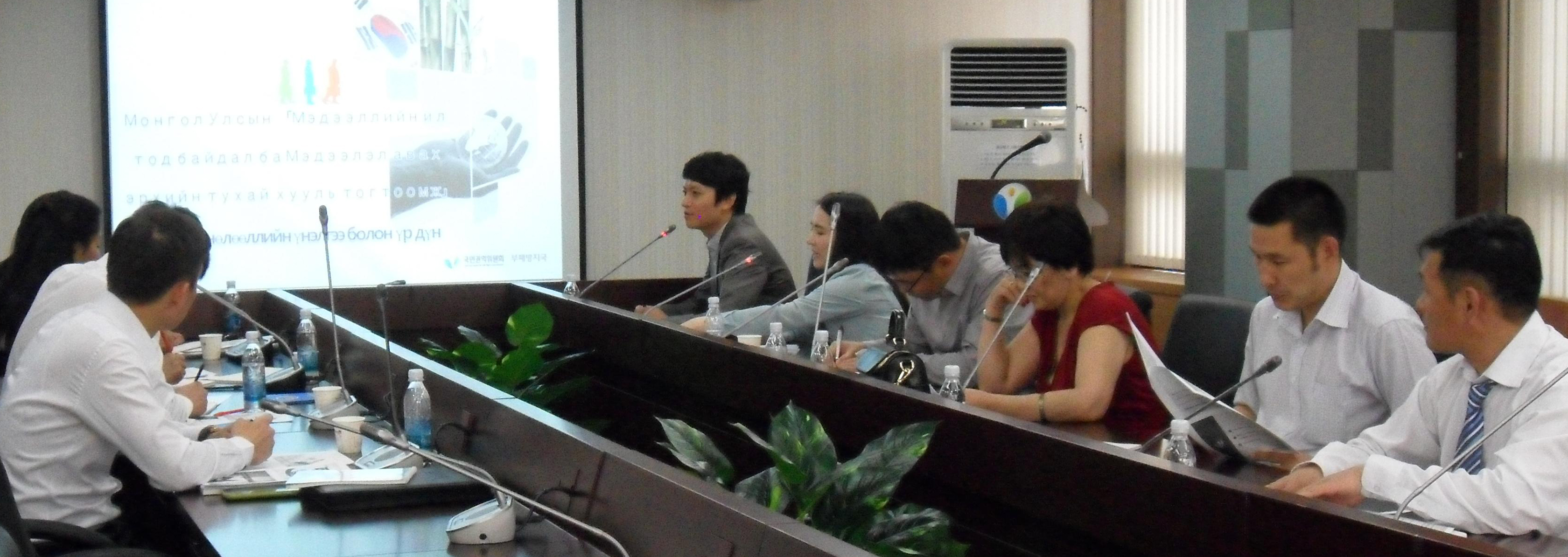Mongolian officials learn "Corruption Impact Assessment" from Korea
- Date2015-01-08
- Hit1,301
June 18, 2014

Eight officials of the Independent Authority Against Corruption (IAAC) of Mongolia visited the ACRC to learn the anti-corruption policies of Korea.
The ACRC provided the IAAC officials with extensive training on the Corruption Impact Assessment and the Code of Conduct for Public Officials on June 16-18.
The Corruption Impact Assessment is a corruption-prevention mechanism to analyze and identify the risks of corruption in laws and regulations from the drafting stage, and to recommend the elimination of those risks. The targets of the assessment range from the current laws and decrees, new and amendment bills, administrative rules, local government ordinances, to the internal rules of public service-related organizations.
The Code of Conduct for Public Officials, a Presidential decree, is a legally binding code of ethics that lays down the specific standards of conduct to be observed by public officials.
The ACRC provided case-based training for the Mongolian officials by conducting a trial Corruption Impact Assessment on the Freedom of Information Act of Mongolia and discussing the assessment results with the trainees.
This training was organized to follow up the Korea-Mongolia MOU on anti-corruption cooperation, which was signed by the ACRC and the IAAC in February 2010. Since the conclusion of the MOU, both agencies have carried forward cooperative activities to share their experience and knowledge in the anti-corruption field. Recently, Mongolia has introduced and regularly conducted Korea's "Integrity Assessment" and "Anti-Corruption Initiatives Assessment."
Established under the Mongolian Parliament in 2007, the IAAC is an independent anti-corruption body that carries out the functions of preventing corruption, investigating corruption cases, reviewing the assets of public officials, and analyzing and examining the risks of corruption.

Eight officials of the Independent Authority Against Corruption (IAAC) of Mongolia visited the ACRC to learn the anti-corruption policies of Korea.
The ACRC provided the IAAC officials with extensive training on the Corruption Impact Assessment and the Code of Conduct for Public Officials on June 16-18.
The Corruption Impact Assessment is a corruption-prevention mechanism to analyze and identify the risks of corruption in laws and regulations from the drafting stage, and to recommend the elimination of those risks. The targets of the assessment range from the current laws and decrees, new and amendment bills, administrative rules, local government ordinances, to the internal rules of public service-related organizations.
The Code of Conduct for Public Officials, a Presidential decree, is a legally binding code of ethics that lays down the specific standards of conduct to be observed by public officials.
The ACRC provided case-based training for the Mongolian officials by conducting a trial Corruption Impact Assessment on the Freedom of Information Act of Mongolia and discussing the assessment results with the trainees.
This training was organized to follow up the Korea-Mongolia MOU on anti-corruption cooperation, which was signed by the ACRC and the IAAC in February 2010. Since the conclusion of the MOU, both agencies have carried forward cooperative activities to share their experience and knowledge in the anti-corruption field. Recently, Mongolia has introduced and regularly conducted Korea's "Integrity Assessment" and "Anti-Corruption Initiatives Assessment."
Established under the Mongolian Parliament in 2007, the IAAC is an independent anti-corruption body that carries out the functions of preventing corruption, investigating corruption cases, reviewing the assets of public officials, and analyzing and examining the risks of corruption.









